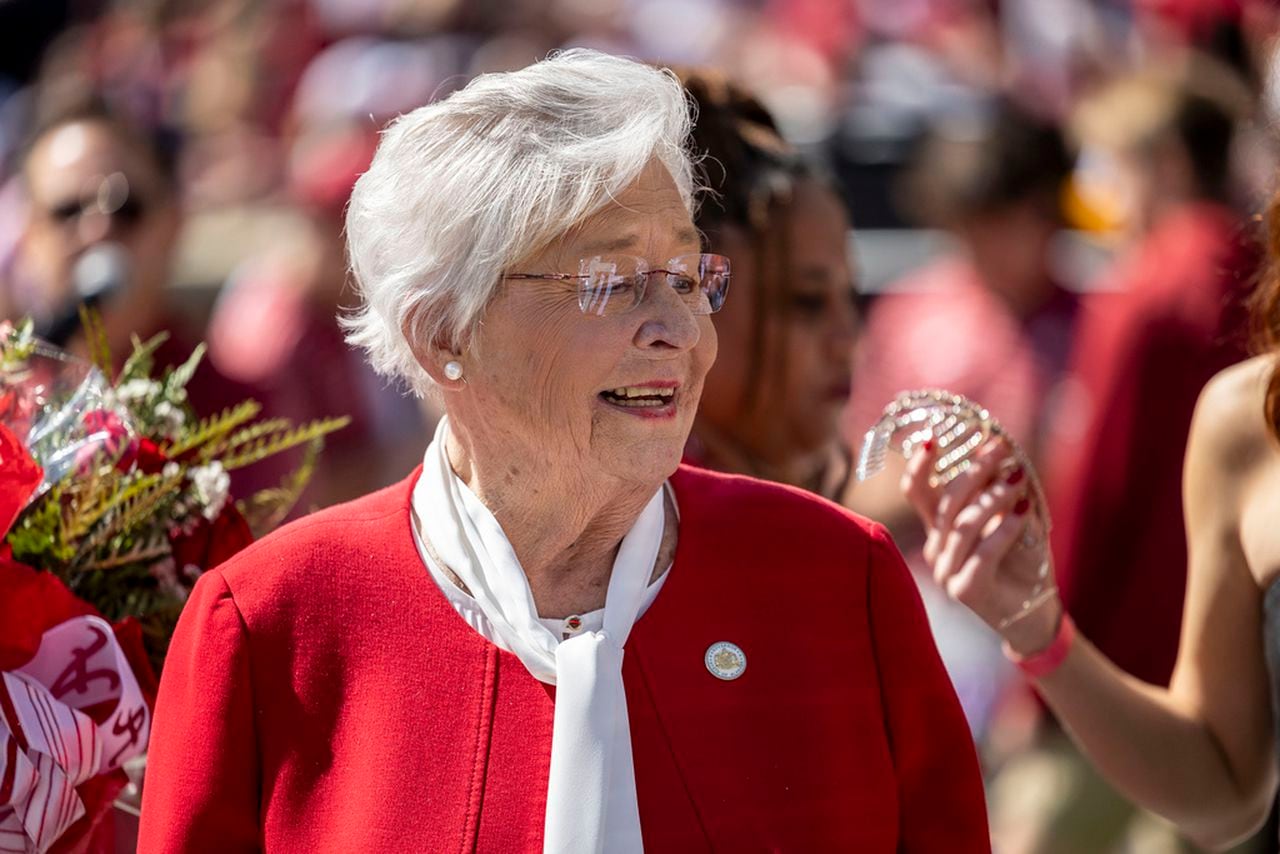Alabama school choice bill awaits Ivey’s signature: ‘Monumental achievement’ to become law after heated debate
A bill that would give Alabama families $7,000 to pay for private school tuition is on its way to Gov. Kay Ivey’s desk to be signed into law.
HB129, called the CHOOSE Act, would create education savings accounts, or ESAs, for families of students to use toward eligible education expenses.
The Senate Education Budget committee approved the House version in a hastily rescheduled meeting Tuesday afternoon.
The vote was 10-3 and fell along party lines, with Republicans voting yes and Democrats voting no.
While Ivey heralded it as “monumental achievement” that would help Alabama families, the state Senate’s Democratic leader warned it was a “new segregation” financed “on the backs of poor children.”
As the bill moved through the House, a dozen amendments were added to the bill, according to Ivey’s education policy director Nick Moore.
After five hours of debate on Wednesday, the full Senate struck down additional amendments offered on the floor and passed the bill on a 23-9 vote, fast-tracking it to the governor’s office.
Ivey has championed the bill during the legislative session and said tonight she is eager to sign it.
“It was an honor to work with Governor Ivey and her team to swiftly pass a school choice bill that she declared her number one priority this Session,” Sen. Arthur Orr, R-Decatur, said in a statement after the vote. “I believe Governor Ivey desires nothing but the best for all Alabama’s school children and their families both today and in the years to come.”
“Children are our future, and there is no greater responsibility for lawmakers than ensuring our kids have every resource needed for academic success regardless of their zip code,” Senate President Pro Tempore Greg Reed said.
Sen. Rodger Smitherman, D-Birmingham, proposed an amendment to provide a refund to public schools in instances where a student with a disability enrolled in the program and still used public special education services.
“It hurts to know that we’ve got money in this state, in these budgets, and we won’t provide all that our kids need,” Smitherman said.
Orr said he wouldn’t support the amendment because it would be difficult to calculate a state refund, given that special education services are often federally funded. The amendment failed on a 10-23 vote.
Senate Minority Leader Bobby Singleton, D-Greensboro, offered amendments to ensure all schools have completed the accreditation process and to ensure teachers serving students enrolled in the program are certified by the state department of education. Republicans voted it down.
On the floor Wednesday, Singleton questioned the lack of public accountability measures included in the bill, arguing that the program could pave a way for more students to skirt testing requirements and enter the workforce unprepared.
He added that the program – though it purports to support low-income students – would exclude families without access to transportation and further drain resources from struggling public schools.
“This is the new segregation,” he said. “We’re just paying for it this time. Paying for it on the backs of poor children.”
The Senate also struck down two amendments from Sen. Larry Stutts, R-Tuscumbia, which would expand eligibility to children of retired veterans and students under 21 years of age.
In a statement Wednesday evening the governor’s office praised the bill’s sponsors for their efforts.
“Today, we’ve finally overcome the last hurdle in enacting Alabama’s historic education savings account plan after the Alabama Senate strongly approved the CHOOSE Act,” Gov. Kay Ivey said in a statement Wednesday evening. “While our state has a strong public education system, all Alabama families will soon have the right to choose their children’s schools.”
“We want every Alabama student – whether they are at a public school, private school, magnet, charter or homeschool – the opportunity to receive a high quality education. I look forward to signing the CHOOSE Act into law.”
How it will work
Lawmakers will allocate at least $100 million each year to fund ESAs, with unused money rolling over to the next year. The fund cannot contain more than $500 million in any one year.
The Alabama Department of Revenue will be in charge of all aspects of the program. Current public schools must cooperate with and provide records for students currently enrolled in public school who are eligible for and choose to use an ESA.
The first ESAs will be available in the 2025-26 school year and will be limited to eligible students. All students will be eligible for ESAs at the start of the 2027-28 school year.
Students between the ages of 5 and 19 who have not graduated high school are eligible for ESAs. Students with disabilities between the ages of 5 and 21 are also eligible.
Read more: What you need to know about Alabama’s school choice bill
The parent of a student receiving an ESA must agree to pay the remaining amount of tuition or expenses beyond the $7,000 cap.
Participating schools and education service providers cannot discriminate against a student based on race, color or national origin. They are not required to accept all students, though. They are not prohibited from discriminating against a student with a disability and they are not required to provide services for children with disabilities.
Parents and students cannot receive any money from the ESA.
